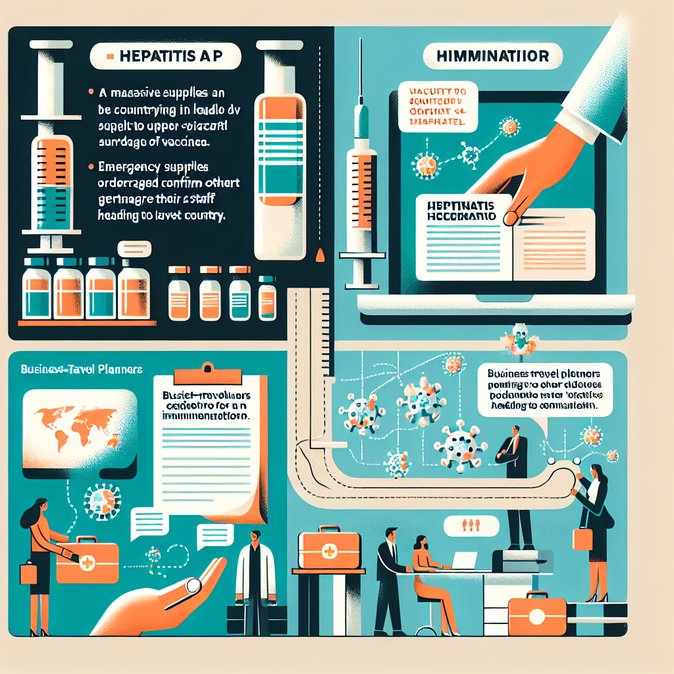
The Czech State Institute of Health confirmed on 28 October that the country is battling its largest hepatitis A outbreak in nearly half a century, with 2,141 cases and 26 deaths recorded since the virus spilled over from neighbouring Slovakia in April 2024. Demand for the hepatitis A vaccine has surged accordingly—over 127,000 doses have been administered in 2025, nearly double last year’s total—leaving clinics and travel-health centres short of stock.
The State Institute for Drug Control (SÚKL) told local media that it has negotiated emergency shipments from two multinational manufacturers, expected to arrive “within days.” Until supplies stabilise, Czech public-health officials are prioritising doses for high-risk groups such as food-service workers, sewage-treatment staff and travellers to regions with ongoing outbreaks. The U.S. Centers for Disease Control and Prevention continues to recommend hepatitis A vaccination for all visitors to Czechia, underscoring the international dimension of the situation.
For global-mobility managers, the shortage represents both a duty-of-care issue and a logistical challenge. Employees scheduled to travel to or through Czechia in the coming weeks should verify their immunisation status at least two weeks before departure. Where vaccine is unavailable, doctors may prescribe immune globulin as temporary protection, but this adds cost and complexity to trip planning.
Companies with assignee populations in Prague and Brno are also reviewing office hygiene protocols—particularly in shared kitchens—to reduce secondary transmission. Insurance providers warn that medically-necessary evacuation for severe hepatitis A can cost upwards of €75,000, reinforcing the need for preventive measures.
Practical takeaway: incorporate hepatitis A vaccination checks into pre-travel risk assessments for Czechia, communicate alternative prophylaxis options, and stay alert for further public-health updates that could affect border entry requirements or local medical capacity.
The State Institute for Drug Control (SÚKL) told local media that it has negotiated emergency shipments from two multinational manufacturers, expected to arrive “within days.” Until supplies stabilise, Czech public-health officials are prioritising doses for high-risk groups such as food-service workers, sewage-treatment staff and travellers to regions with ongoing outbreaks. The U.S. Centers for Disease Control and Prevention continues to recommend hepatitis A vaccination for all visitors to Czechia, underscoring the international dimension of the situation.
For global-mobility managers, the shortage represents both a duty-of-care issue and a logistical challenge. Employees scheduled to travel to or through Czechia in the coming weeks should verify their immunisation status at least two weeks before departure. Where vaccine is unavailable, doctors may prescribe immune globulin as temporary protection, but this adds cost and complexity to trip planning.
Companies with assignee populations in Prague and Brno are also reviewing office hygiene protocols—particularly in shared kitchens—to reduce secondary transmission. Insurance providers warn that medically-necessary evacuation for severe hepatitis A can cost upwards of €75,000, reinforcing the need for preventive measures.
Practical takeaway: incorporate hepatitis A vaccination checks into pre-travel risk assessments for Czechia, communicate alternative prophylaxis options, and stay alert for further public-health updates that could affect border entry requirements or local medical capacity.








